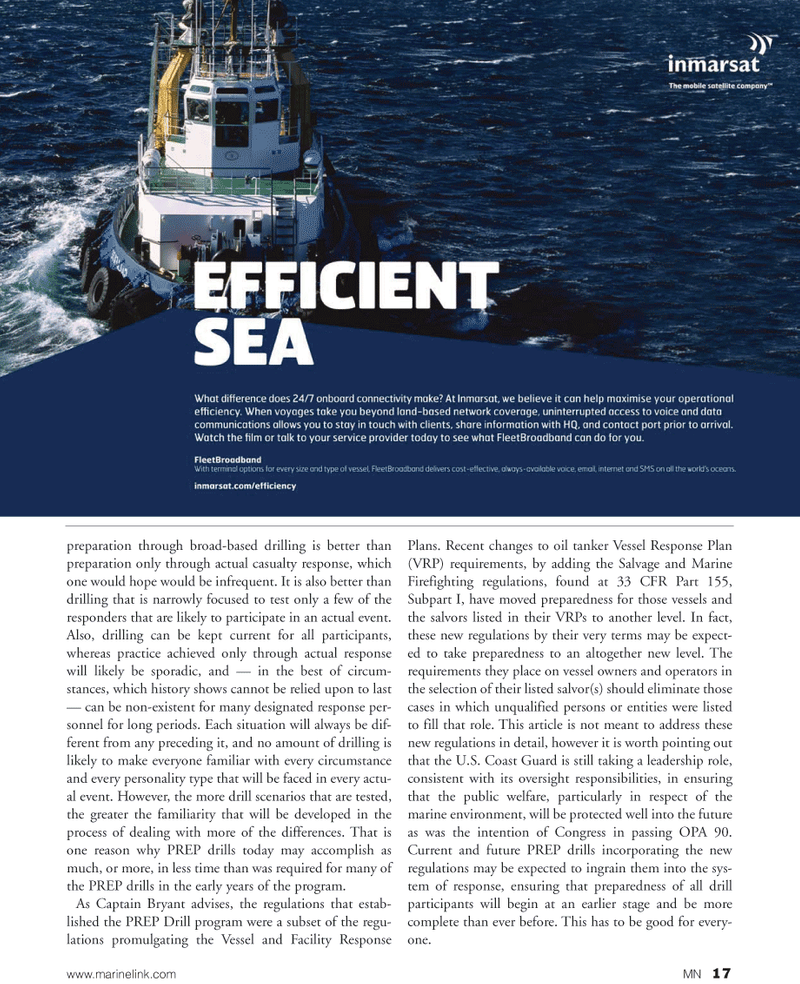
Page 17: of Marine News Magazine (June 2011)
CEO Six-Pack: The Leadership Edition
Read this page in Pdf, Flash or Html5 edition of June 2011 Marine News Magazine
www.marinelink.com MN 17 preparation through broad-based drilling is better than preparation only through actual casualty response, which one would hope would be infrequent. It is also better than drilling that is narrowly focused to test only a few of the responders that are likely to participate in an actual event.
Also, drilling can be kept current for all participants, whereas practice achieved only through actual response will likely be sporadic, and — in the best of circum- stances, which history shows cannot be relied upon to last — can be non-existent for many designated response per- sonnel for long periods. Each situation will always be dif- ferent from any preceding it, and no amount of drilling is likely to make everyone familiar with every circumstance and every personality type that will be faced in every actu- al event. However, the more drill scenarios that are tested, the greater the familiarity that will be developed in the process of dealing with more of the differences. That is one reason why PREP drills today may accomplish as much, or more, in less time than was required for many of the PREP drills in the early years of the program.
As Captain Bryant advises, the regulations that estab- lished the PREP Drill program were a subset of the regu- lations promulgating the Vessel and Facility Response
Plans. Recent changes to oil tanker Vessel Response Plan (VRP) requirements, by adding the Salvage and Marine
Firefighting regulations, found at 33 CFR Part 155,
Subpart I, have moved preparedness for those vessels and the salvors listed in their VRPs to another level. In fact, these new regulations by their very terms may be expect- ed to take preparedness to an altogether new level. The requirements they place on vessel owners and operators in the selection of their listed salvor(s) should eliminate those cases in which unqualified persons or entities were listed to fill that role. This article is not meant to address these new regulations in detail, however it is worth pointing out that the U.S. Coast Guard is still taking a leadership role, consistent with its oversight responsibilities, in ensuring that the public welfare, particularly in respect of the marine environment, will be protected well into the future as was the intention of Congress in passing OPA 90.
Current and future PREP drills incorporating the new regulations may be expected to ingrain them into the sys- tem of response, ensuring that preparedness of all drill participants will begin at an earlier stage and be more complete than ever before. This has to be good for every- one.

 16
16

 18
18
